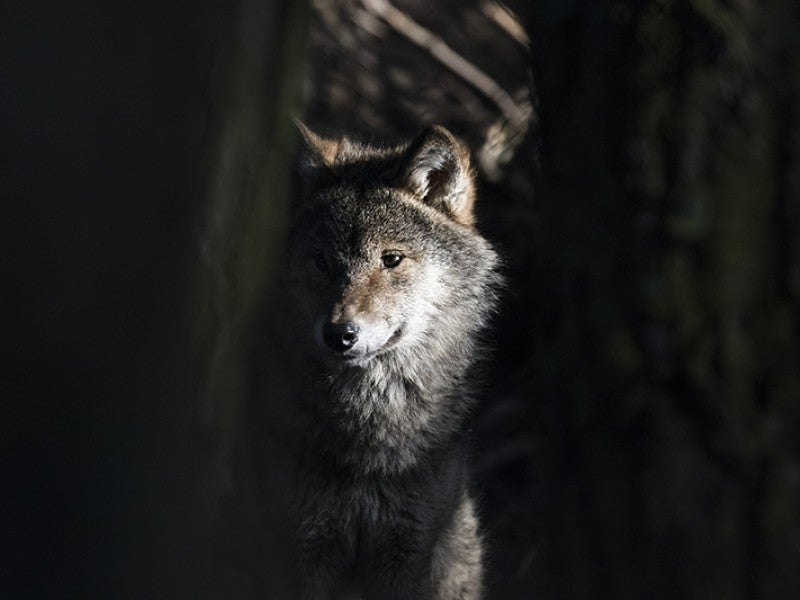Earthjustice goes to court for our planet.
We’re here because the earth needs a good lawyer.
A Plan to Kill 300 Wolves in Wisconsin Has Sparked Outrage Among Tribal Nations
This page was published 4 years ago. Find the latest on Earthjustice’s work.
This November, up to 300 gray wolves are scheduled to be slaughtered in a hunt approved by Wisconsin state officials, despite the opposition of tribal communities. The Ojibwe People, who have treaty rights to roughly half of the state’s wolf population, oppose the hunt as a culturally offensive and ecologically harmful practice.
Earthjustice, representing a coalition of tribes, has sued the Wisconsin Department of Natural Resources and the Wisconsin Natural Resources Board. We petitioned the court to rule before the hunt on Nov. 6 to avoid irreparable harm to the wolves. The court has now scheduled a hearing on Oct. 29.
Background:
- In November 2020, the Trump administration delisted the gray wolf from the Endangered Species Act (ESA), the protections of which have prevented its extinction. Following this action, pro-hunting lawmakers in multiple states organized wolf hunts.
- After the delisting, Hunter Nation, a pro-hunting group, sued to compel the state of Wisconsin to conduct a wolf hunt in February 2021. Hunters used dog packs, snares, and leg-hold traps to kill 218 wolves, exceeding both the state and tribal quotas.
- The hunt took place during breeding season, disrupting family packs at a critical time for pup survival and causing further damage to the wolf population. Up to a third of the state’s wolf population was killed, and the Tribes’ treaty-protected share was nearly annihilated.
The Latest:
- In August 2021, Wisconsin’s Natural Resource Board approved a quota of 300 wolves for the upcoming November hunt, more than double an already problematic quota of 130 suggested by the Department of Natural Resources.
- Neither quota was based on a population estimate or sound ecological principles. In addition to lacking any scientific basis, the approved quota violates the Ojibwe Tribes’ right to manage its share of the wolf population.
- The Natural Resources Board failed to implement safeguards to prevent the Tribes’ share from once again being slaughtered, violating their rights by failing any attempt to reach consensus with the Tribe on a quota for the upcoming hunt.
Earthjustice’s Role:
- Earthjustice is representing six Ojibwe tribes who say the proposed hunt violates their treaty rights. The court has agreed to hear our case on Oct. 29, a few days before the hunt is scheduled.
- In January, Earthjustice filed a lawsuit against the Trump administration for removing Endangered Species Act protections for gray wolves across the lower 48 states.
- In 1967, before the ESA was passed into law, less than 1,000 wolves existed in a small section of northeastern Minnesota and in Michigan on Isle Royale National Park, a small island cluster on Lake Superior. Wolf populations had been decimated elsewhere across the country.
- While ESA protections have supported some recovery of wolf populations, data shows that the species remains functionally extinct from the majority of its former range across the U.S.
- Earthjustice has spent decades fighting for wolf recovery and will continue that fight with our tribal partners in this case, Bad River Band of Lake Superior Chippewa, Lac Courte Oreilles Band of Lake Superior Chippewa Indians, Lac du Flambeau Band of Lake Superior Chippewa Indians, Red Cliff Band of Lake Superior Chippewa Indians, the Sokaogon Chippewa Community, and St. Croix Chippewa Indians of Wisconsin.
How you can help:
We need a federal solution. Tell the Biden administration to restore full Endangered Species Act protections for wolves.
Wolves and Ojibwe Heritage:
The Ojibwe believe that wolves, called Ma’iingan in the Ojibwe language, were created as humanity’s brother, to teach lessons about hunting and family. To the Ojibwe, wolves exemplify perseverance, guardianship, intelligence, and wisdom. Managing the wolf population with sound ecological principles is critical to the Tribes because wolves promote a healthy and biologically diverse environment.
As predators of large and mid-sized mammals, they help the plant species that those mammals consume recover and flourish. Those plant species, in turn, provide cover and forage for smaller animals. The Ojibwe rely on these wild plants and small game species for food and medicine.
